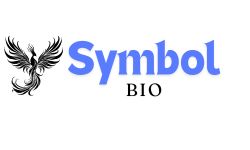
If you’re looking to expand your business fleet or kickstart a new venture in Australia’s transport sector, understanding truck finance options is crucial. Trucks are significant investments and can impact your cash flow, tax planning, and operational capabilities. With various financing solutions available, it’s essential to choose one that aligns with your business needs and financial situation.
Exploring Truck Finance Options
1. Secured Truck Loan (Chattel Mortgage):
A chattel mortgage is one of the most common truck finance options in Australia. Under this arrangement, the lender provides the funds to purchase the truck, and the vehicle itself serves as security for the loan. Your business owns the truck outright, and repayments are made over a set term. This method is particularly popular due to potential tax advantages, including GST refunds and depreciation claims, assuming the truck is used for business purposes more than 50% of the time.
2. Lease Agreements:
Truck leasing offers flexibility, particularly for businesses that prefer not to commit to vehicle ownership. Operating leases allow you to use the truck for a fixed term with set payments, after which the truck is returned or purchased for a residual value. This model helps businesses maintain modern fleets without the long-term commitment and can often include maintenance and servicing in the lease agreement.
3. Commercial Hire Purchase:
In this arrangement, the financier purchases the truck on your behalf, and you hire it from them for a fixed monthly repayment. Ownership transfers to you once the final payment is made. This structure also allows for potential tax benefits and fixed budgeting.
4. Unsecured Business Loans:
If you don’t want to tie the loan to the truck itself or don’t have collateral, an unsecured business loan might be suitable. While generally featuring higher interest rates, these loans offer flexibility and faster approvals, ideal for businesses needing immediate funding for truck purchases or upgrades.
Factors Influencing Loan Approval
Lenders assess several factors when evaluating a truck finance application. Understanding these can help you prepare a stronger case:
- Business Tenure: Lenders generally favor businesses that have been operating for at least 12 months, as this indicates stability and lowers risk.
- Credit History: A good credit score not only boosts approval chances but can also help you secure better interest rates and terms.
- Annual Revenue: Many lenders require a minimum annual turnover, typically starting from $75,000 to $100,000.
- Ownership of Property: Property owners are often seen as more creditworthy, which can increase loan limits or improve loan terms.
- Truck Type and Age: Newer trucks often qualify for better finance rates as they hold their value better and have lower maintenance risks.
- Usage: The truck must be used predominantly for business—usually over 51%—to qualify for most types of commercial finance.
Tips for Securing the Best Truck Loan
- Compare Lenders: Don’t just go with your business bank. Compare interest rates, fees, and terms across multiple providers.
- Consider Pre-Approval: Getting pre-approved can clarify your budget and give you better bargaining power with sellers.
- Watch for Hidden Costs: Be wary of additional charges like early repayment fees, account maintenance fees, or insurance requirements bundled with the loan.
- Speak to a Broker: A finance broker can help match your needs with the right lender, often accessing deals not directly available to borrowers.
The Last Word
Truck loan or finance is not a one-size-fits-all proposition. Whether you’re upgrading a single truck or building a fleet, the right finance solution can make a big difference to your business’s financial health and growth potential. Taking the time to explore your options, understand your eligibility, and plan strategically will set you on the road to success—literally and financially.
